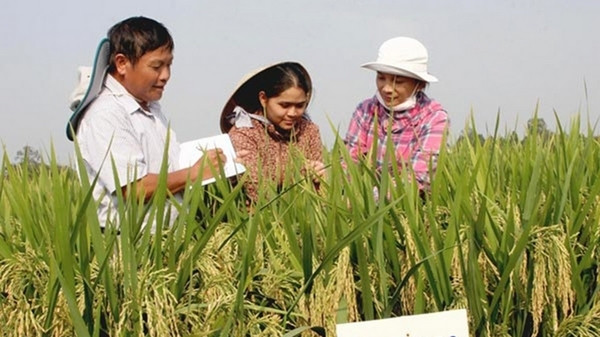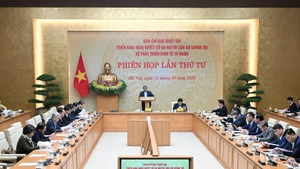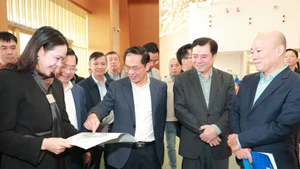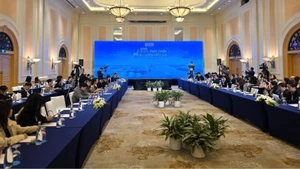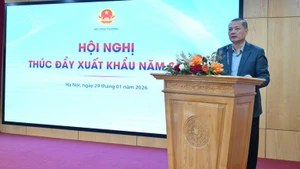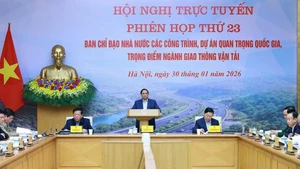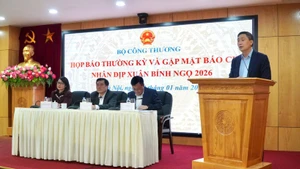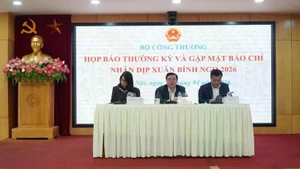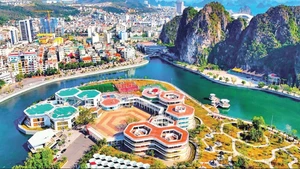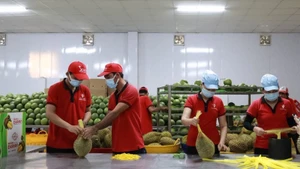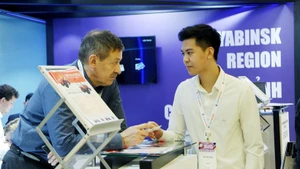Challenges due to climate change
By the end of 2014, 90 hybrid rice varieties from the International Rice Research Institute (IRRI) were certified in Vietnam and Vietnam sent 3,000 rice varieties to the IRRI’s banks to be preserved. Earlier, the IRRI provided 2,000 crops for Vietnam to use in research, as well as in selecting and creating new seeds.
According to Deputy Head of the Cultivation Department Tran Xuan Dinh, currently, the domestic production capacity only meets 40%-45% of demand. In implementing the programme supporting hybrid rice seed production (both parental strains and F1 hybrid seeds), Vietnam produces 6,500-7,000 tonnes of seeds per year; meanwhile, around 11,000 – 12,000 tonnes of other seeds are imported.
However, the importing of hybrid rice varieties is not likely to result in many advantages for domestic rice production. Particularly in the context of complicated climate change, unusual weather such as droughts and flooding have seriously affected the results of production, resulting in corns with few seeds and a shortage of tomatoes, which has left some families in poverty. Therefore, cooperation in researching and crossbreeding varieties of rice adapted to the affects of climate change has become an urgent task.
According to statistics released by the Vietnam Agricultural Sciences Institute, Vietnam was provided with 40 top-quality rice seeds from numerous countries around the world. However, they could not be used immediately due to weather conditions in the country; therefore, it is essential to select, improve and utilise genes with good resilience in the face of such disasters and high productivity in order to create varieties suited to changing climate conditions in the country.
Cooperation in crossbreeding new rice varieties
The IRRI has been the traditional partner of Vietnam’s rice industry since the 1980s. In a seminar on prior programmes to raise the position of the Vietnamese rice industry on November 4 in Hanoi, the IRRI’s General Director Matthew Morell affirmed that the institute’s gene banks were collecting natural resources for natural genes, the genetic structure and representatives of selected rice seeds. They are important natural resources for the collection of important traits as well as the varieties adapted to the impacts of climate change in Vietnam.
The IRRI can support Vietnamese partners in increasing productivity and reducing inputs (including pesticides, fertilisers, water, workers and seeds) while improving the rice quality. Its research can contribute to reducing losses during and after the harvest, as well as optimising the supply of resources and the quality of products.
In order to face the challenges presented by climate change, the enhancement of cooperation between Vietnamese rice industry and the IRRI is very essential, creating favourable conditions in which for Vietnam to maintain its top position in rice exports around the world. Deputy Minister of Agriculture and Rural Development Le Quoc Doanh proposed that Vietnam should change the ways it cooperates with the IRRI in selecting and creating new rice varieties with the aim of developing Vietnam’s rice brand.
In order to develop Vietnam’s gene bank, in addition to expanding cooperation, domestic scientists need to be more active in developing rice varieties through crossbreeding and producing seeds in the country. Professor Le Huy Ham, Director of Vietnam’s Agricultural Genetics Institute, said that Vietnam is home to many rice varieties, therefore it is not essential to create more new seeds. Vietnamese scientists should bring genes that can adapt to climate change into existing varieties, he added. In addition, Vietnam wants to promote cooperation in new scientific fields, such as agronomic genetics.
Currently, domestic research facilities have fully mastered the technology to select and create varieties through the traditional hybrid methods, in combination with techniques from biotechnology; therefore, Vietnamese scientists can proactively produce hybrids and genuine breeds, contributing to curbing the need for imports of rice seeds. The country should also pay much attention to the co-operation with foreign countries to exchange material resources, contributing to diversifying exported rice products.
